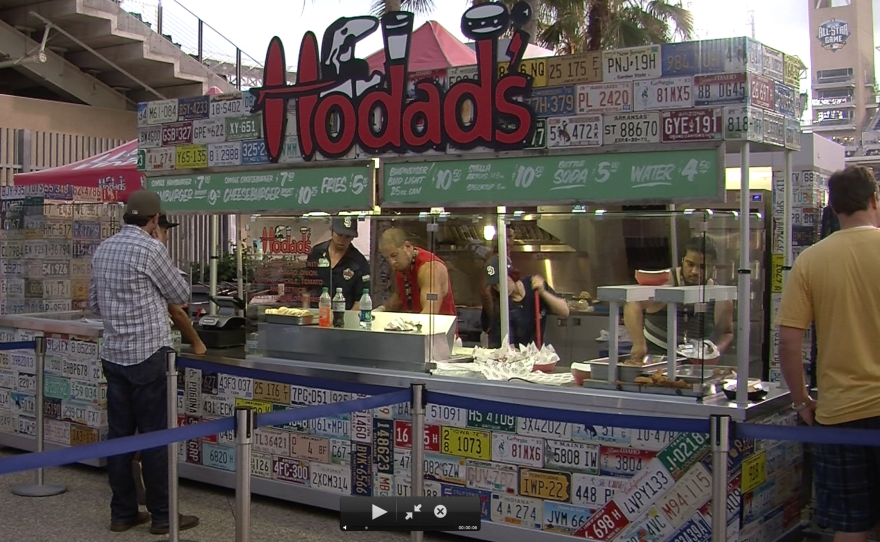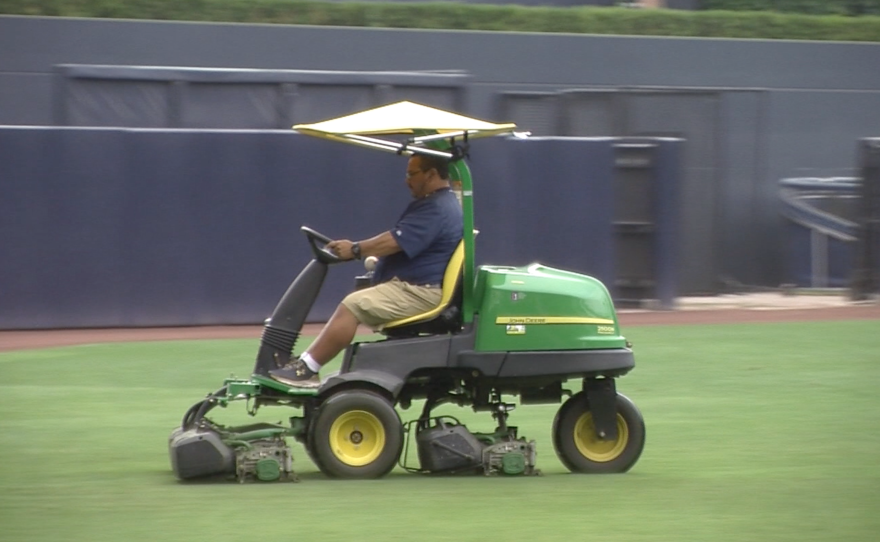It’s 7:30 a.m. on game day at Petco Park in downtown San Diego and the food trucks have just started rolling in.
As part of his daily routine, Petco Park executive chef Carlos Vargas awaits the fresh produce.
During home games, local growers like Suzie’s Farm and Melissa’s Produce, based out of Los Angeles, make daily deliveries of fresh vegetables and fruits.
“See the quality of the raspberries that we have in here? It’s just unbelievable how good and sweet they are,” said Vargas after tasting one of the raspberries.
In late June, the San Diego Padres and concession partner Delaware North were recognized as “Champions of Game Day Food” in a joint report by the Natural Resources Defense Council and the Green Sports Alliance.
The report named the Padres and Petco Park as one of the top locations for stadium eats in the country for their sustainability efforts and food quality.
Allen Hershkowitz, president for Green Sports Alliance, said the Padres are setting an example for other stadiums.
“The Padres are providing valuable lessons not only to professional sports venues throughout North America, but actually professional sports venues throughout the world,” Hershkowitz said.
More than 95 percent of the San Diego Padres concession stands and restaurants get their food from Southern California.
Scott Marshall, vice president and chief hospitality officer for the Padres, said food sales are up.
“We’ve seen an overall increase in food sales because people are coming to the ballpark earlier to have a meal, they’re staying later,” Marshall said. “Typically our locations would close at the seventh inning. We’re seeing that go beyond the game because people want to have that food experience."
That food experience includes 15 local restaurants that have set up shop in the stadium concourse, giving Padre fans a unique taste of San Diego.
“What we found by bringing in and introducing Hodads, was that we started something very special,” Marshall said. “From that the floodgates kind of opened and we had Phil’s come in, we had Seaside Market come in, Rimel’s, Zenbu, Pizza Port, and we really kinda put a taste of San Diego here at the ballpark.”

Getting local food reduces what environmentalists call food miles — costs and resources used when transporting food. Vargas said there is a noticeable freshness using local vendors.
Traditional concessions like nachos, hamburgers, and hot dogs come locally as well, with the hot dogs coming from just outside Chula Vista.
“The company is Tarantino's. That’s who we buy all of our sausages and all of our friar frank dogs. That’s our actual dog here for the stadium,” Vargas said.
But what happens to the food that doesn’t get eaten? What's still good is donated to local shelters.
Food that's considered waste may end up in one of the 20 waste reduction initiatives of the ballpark. Other green practices include making mulch from grass clippings and creating biodiesel with an Escondido-based company.

“Buster Biofuels comes in and they take all of our used cooking oil and they turn it into biodiesel,” said John McEvoy, Padres director of facilities services. “We actually use about 125 gallons of that back in the tractors that we use on the field for mowing the grass throughout the season.”
The Padres waste diversion rate is currently at 77 percent, with plans for 80 percent by the end of 2015.






